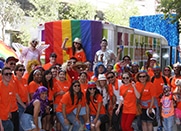Preventing Caregiver Theft From Destroying Your Loved One’s Final Years
Anya was wracked with guilt, a sickening feeling that tossed and turned her throughout the night. As the oldest of the children, she had been responsible for finding a caregiver for her mom. She went through a few caregiver services, did the interviews, and settled on a young woman she thought was the best fit. Anya had been proud of herself, until, nearly a year later, she discovered that the caregiver had been stealing from her mom the entire time, in both large and small amounts. Her mom, suffering from physical ailments as well as the early stages of dementia, had not noticed the theft. By the time it was caught, Anya’s mother was in terrible financial shape. The children all made enough so that she didn’t suffer, but Anya was sickened by the memory. What would have happened if they couldn’t help? What happens to other people?


